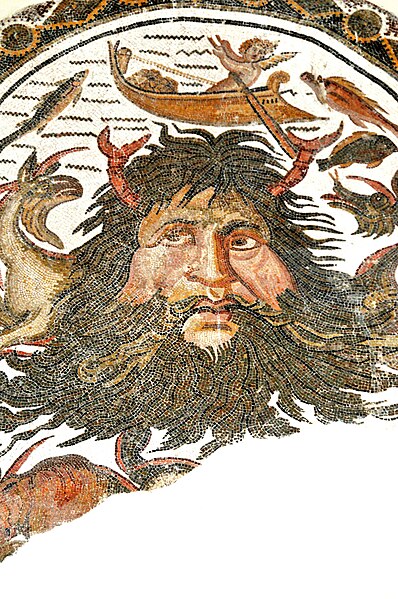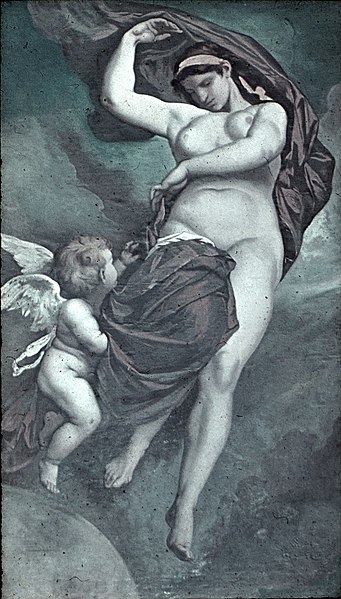In Greek mythology, Pontus was an ancient, pre-Olympian sea-god, one of the Greek primordial deities. Pontus was Gaia's son and has no father; according to the Greek poet Hesiod, he was born without coupling, though according to Hyginus, Pontus is the son of Aether and Gaia.
Pontus in an ancient Roman mosaic, Tunisia
Statue of Pontus (2nd century CE, Constanța History and Archaeology Museum)
In Greek mythology, Gaia, also spelled Gaea, is the personification of Earth. Gaia is the ancestral mother—sometimes parthenogenic—of all life. She is the mother of Uranus (Sky), from whose sexual union she bore the Titans, the Cyclopes, and the Giants; as well as of Pontus (Sea), from whose union she bore the primordial sea gods. Her equivalent in the Roman pantheon was Terra.
Gaia pleads Athena to spare her son, Gigantomachy frieze, Pergamon Altar, Pergamon museum, Berlin.
Gaea by Anselm Feuerbach, 1875 ceiling painting, Academy of Fine Arts Vienna.
Gaia hands her newborn, Erichthonius, to Athena as Hephaestus watches – an Attic red-figure stamnos, 470–460 BC
Gaia entrusts Erichthonios to Athena. From left to right: Hephaestus, Athena, Erichthonios, Gaia, Aphrodite. Said to come from the temple of Hephaestus in Athens. Pentelic marble. 100-150 AD. Louvre






